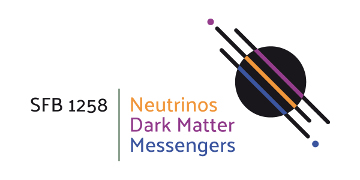venue: Telescopium auditorium, ESO 22 July 2019, 10:00 - 12:30
with coffee at 10:00
10:30 Wick Haxton, UC Berkeley: Dark Matter and the Effective Theory of Direct Detection
Abstract: Dark matter is likely associated with physics beyond the standard model, perhaps residing at very high energy scales. Thus an interesting question is: What can and cannot be learned about dark matter from very low energy elastic scattering off nuclear targets, the process exploited in direct detection experiments? Effective theory provides a convenient framework for finding the answer. It turns out we can learn quite a lot, provided we use nuclear targets with the proper "personalities," and provided we start seeing some signals. Conversely, determining from those signals the low energy WIMP-nucleon effective interaction may prove more challenging than generally anticipated, requiring us to combine results from multiple experiments. This suggests it may be prudent to keep a variety detector types under active development, at least until we learn more about dark matter properties.
11:30 Steen Hannestad, U Aarhus: Neutrino physics in the era of precision cosmology
Abstract: Precision measurements of the cosmic microwave background and the large scale distribution of galaxies have in many ways revolusionized cosmology and transformed it into a mainstream branch of physics. The level of precision of these measurements is now such that cosmology can be used to probe some aspects of particle physics as well as (or better than) laboratory experiments. Perhaps the prime example is the field of neutrino physics. The neutrino mass, for example, is exceedingly hard to measure experimentally, but because neutrinos have a profound impact on how structures form in the Universe cosmological observations can be used to probe the neutrino mass with extremely high precision. In the talk I will review the status of cosmology as a tool for probing the physics of neutrinos and other weakly interacting particles. I will also outline the future of the field, with particular focus on upcoming projects such as EUCLID and LSST.



